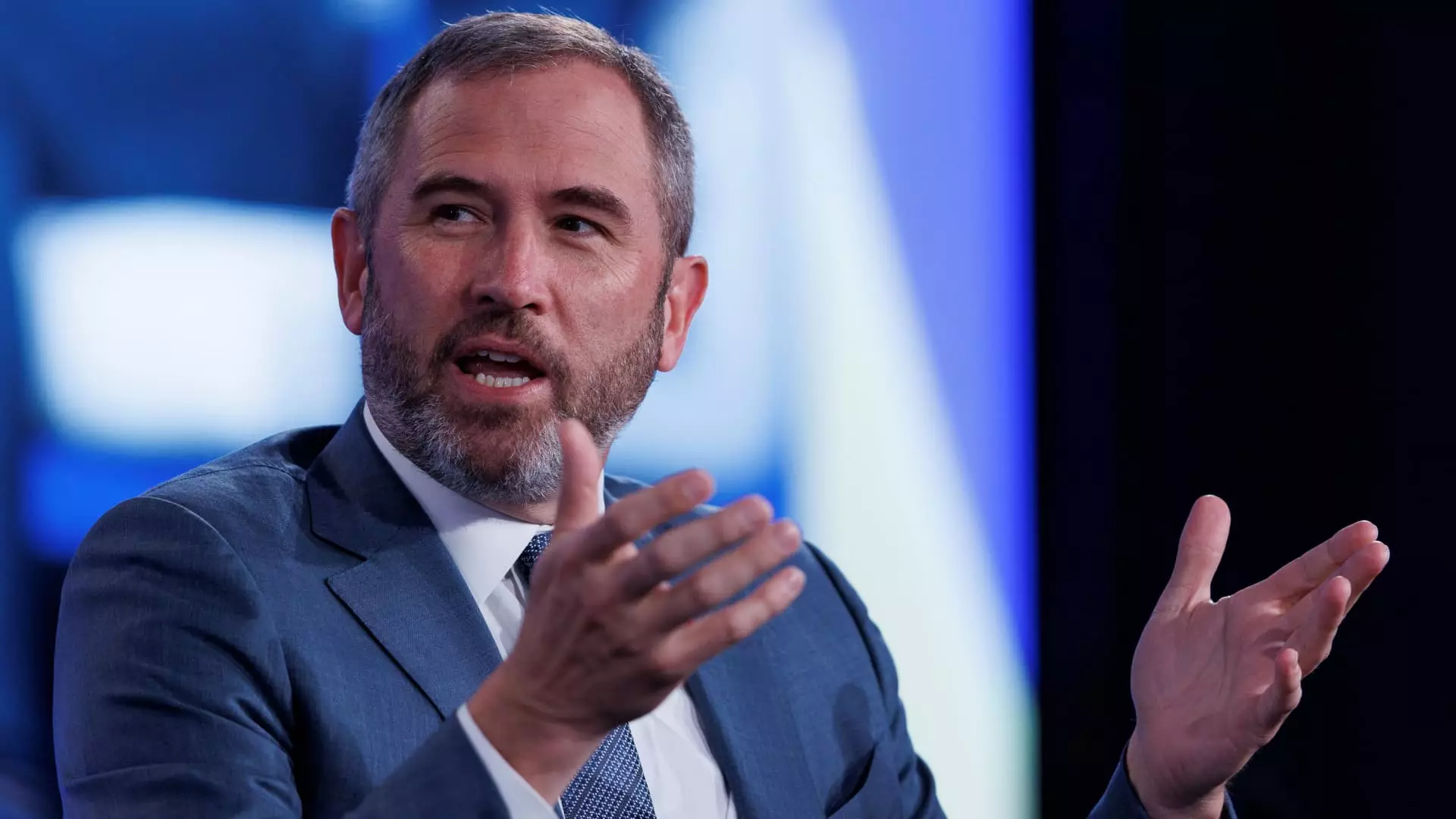In a recent discussion regarding the future of cryptocurrency, Ripple Labs CEO Brad Garlinghouse expressed a cautiously optimistic view on the impending changes in U.S. regulation following the upcoming election. Garlinghouse, known for his forthright views on the regulation of digital currencies, indicated that regardless of the election outcomes, the Congress that follows is likely to exhibit a more favorable stance towards cryptocurrency and technological innovation than ever before. His remarks at DC Fintech Week signified a shift towards optimism in an industry often plagued by uncertainty and regulatory challenges.
Garlinghouse passionately stated, “This is the most important election we’ve had,” implying not just a pivotal moment for the country but a crucial junction for the future of crypto regulation. With entities such as Ripple, which primarily operates on a global scale serving banks outside of the U.S., the significance of regulatory clarity in the domestic market cannot be overstated. Garlinghouse pointed out that approximately 95% of Ripple’s operations occur internationally, a clear indication of the difficulties the company faces within the complex U.S. regulatory landscape.
The backdrop of Garlinghouse’s optimism is Ripple’s ongoing legal battle with the U.S. Securities and Exchange Commission (SEC), marked by a pivotal ruling last year. A court determined that XRP, the cryptocurrency associated with Ripple, does not qualify as a security when sold to retail investors on exchanges. This landmark decision was not only a victory for Ripple but also served as a potential beacon for the wider industry, hinting at a possibility for future regulatory reforms favoring the innovation-led ecosystem.
Considering this legal climate, Garlinghouse suggested fintech startups to consider establishing their operations outside the U.S., an indication of his serious concerns regarding domestic regulations. His advice arguably reflects the sentiment shared by many in the crypto space, emphasizing a need for a more accommodating regulatory framework that fuels innovation rather than stifling it.
As the elections draw nearer, the cryptocurrency industry has shown an increasing undercurrent of partisanship, in stark contrast to earlier bipartisan support for regulatory progress in Congress. Garlinghouse’s insights reflect this shift in sentiment. He highlighted the dichotomy between the attitudes of various political campaigns, specifically mentioning how the Biden administration’s approach has been perceived as hostile. The SEC’s aggressive stance towards cryptocurrency and the reluctance of banking institutions to engage with crypto companies epitomize the environment that Garlinghouse describes as “Operation Chokepoint 2.0,” a method of discouraging banks from associating with high-risk yet legal enterprises.
The CEO also underscored the growing political contributions from Ripple, including a $45 million donation to the pro-crypto political action committee Fairshake. These contributions underscore a strategic effort to influence legislative outcomes in favor of innovation and development within the crypto space during this crucial political season.
Furthermore, Garlinghouse’s assessment included a nod toward potential resets in the political approach to cryptocurrency, predicting that any shift in leadership will likely bring about changes favorable to the industry. “We’re going to see forward progress, and I certainly am looking forward to that,” he remarked optimistically. This expectation aligns with the broader industry sentiment that improvements and clarity in regulation are on the horizon, as officials and lawmakers recognize the economic potential of the technology.
In a move towards active participation in shaping this narrative, Garlinghouse has thrown his support behind John Deaton, an attorney challenging Senator Elizabeth Warren, known for her critical stance toward the cryptocurrency sector. Deaton’s candidacy represents a push for a more constructive dialogue on regulation and oversight that could chart a more balanced course for the industry’s future.
Ultimately, the remarks made by Garlinghouse exemplify the resilience of the cryptocurrency sector despite the challenges it has faced in the U.S. regulatory environment. The anticipation surrounding the upcoming election and the potential for a more pro-crypto Congress signify a critical moment for stakeholders and investors alike. Garlinghouse’s belief that the existing negative regulatory atmosphere will serve merely as a “speed bump” rather than a permanent impediment encapsulates a forward-looking perspective.
As we move closer to the election, industry players remain hopeful that clarity in regulations will emerge, driving growth and innovation. Ripple’s journey, underscored by legal victories and strategic contributions, sets the tone for an industry poised for more significant advancements and acceptance in the world of finance. With the winds of change seemingly on the horizon, the future of cryptocurrency in the U.S. may indeed take a more favorable turn, leading to opportunities that foster development in this ever-evolving landscape.

